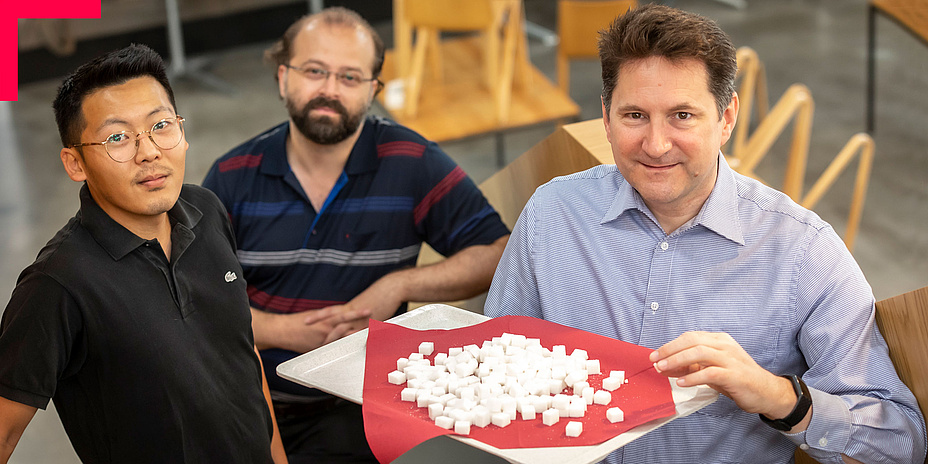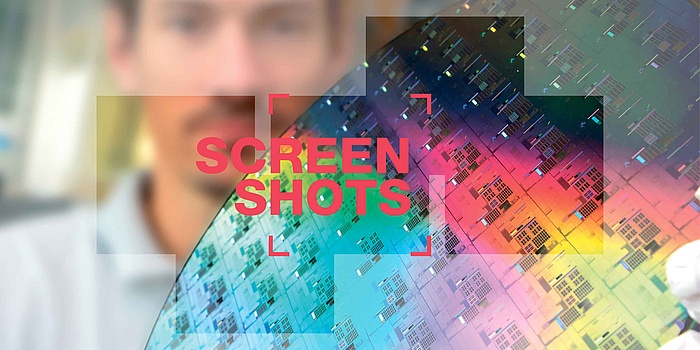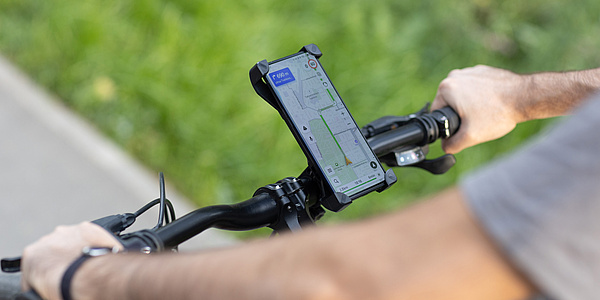Providing precise medical information

Who, as a layman, has never shaken their head in puzzlement over a doctor's letter? Who really understands what the blood count figures mean? And hand on heart, who has never googled their symptoms and then wished they hadn't? When it comes to open questions about health and illness, the internet offers an immeasurable wealth of information, but not necessarily a good answer. Exactly what "Dr. Google" cannot do is now to be provided by a research project at Graz University of Technology (TU Graz) which gives meaningful, accurate information in a medical field tailored to the person doing the search. And what's more – presented in a way that significantly improves the uptake and understanding of information.
Graz research project on diabetes
The example of diabetes type II is being studied in Graz, says Professor Tobias Schreck from the Institute of Computer Graphics and Knowledge Visualisation at TU Graz. "We chose diabetes because the disease is widespread. People have it for years and you go through different phases, each with different issues," he explains. In addition, several factors such as diet, exercise and medication play a role. How can medical content on this disease be individually adapted and made easier to understand? That’s the question. The vision that drives Schreck and his team is a kind of personalized and interactive "Wikipedia". However, the platform is not intended to provide the same information to everyone, but to offer the best possible benefit because it answers in a personalized and understandable way.
Identifying previous knowledge and interests
And how can the system assess the person who is searching? This is where the Institute of Psychology at the University of Graz comes into play. It is working together with the specialists in computer graphics and knowledge visualization at TU Graz and the Institute of General Medi-cine at the Medical University of Graz as part of a research group funded by the Austrian Science Fund (FWF). "The interests of the users of the platform can be identified through interactions with the system as well as ratings via feedback and preferences. Even methods such as registering the line of gaze and log file analyses for time on page and interaction are also used," says psychologist Dietrich Albert: "What is important is the dynamics over time, and how interest changes." And of course the new platform must learn to react to this.
Studying knowledge visualization
However, the best information is useless if we cannot absorb it. Central to the project is therefore the knowledge visualization that specialists at TU Graz are developing. "Visualization allows us to grasp a lot of information at once and thus more quickly. Just imagine the effect of highlighting individual points in a technical article with a highlighter pen. Knowledge visualization is attracting more and more attention, and is one of our research focuses and a study specialization," says Tobias Schreck. The "tools" and basics developed in the project are to be applied to other areas. "Medical informatics is an exciting topic of the future," says Tobias Schreck. Many students are already involved in research projects such as the new health platform. As a field of study, visual computing is particularly diverse. At TU Graz, it ranges thematically from image processing to virtual and augmented reality and information visualization.
Studying at TU Graz: If you want to study knowledge visualization, you will find that the following Bachelor's degree programmes at TU Graz will provide an ideal basis: Computer Science, Information and Computer Engineering and Software Engineering and Management.
Building on this, there are the Master's programmes in Computer Sciences, Software Engineering and Management and Information and Computer Engineering.
System learns from interactions
The users' interactions with the displays are an important feedback. The researchers learn whether something is relevant for the users – as does the system. "There are, of course, rules for visualization and studies on when and how to use diagrams, graphs or maps," says project team member Lin Shao from the Institute of Computer Graphics and Knowledge Visualisation: "In the same way, the system needs semantic technologies, categories and user groups to be able to allocate data. But it should also recommend, for example, a level of detail in the presentation. And this is a new development."
Trust in the system plays just as big a role in applications like the health platform, emphasizes project team member Hossein Miri: "Not only the back-end, but also the front-end is important. In other words, whether you use a digital character or a human character for the presentation. In the same way, trust is strengthened if it is made absolutely clear why the system offers the information it does." Transparency is essential.
How do those affected benefit from the research?
The benefit of the health platform can be that people are more informed when they go into a doctor's consultation. Or that they can inform themselves quickly and in an independent way in the course of their illness. "The overarching goal is to positively influence the self-efficacy of those affected. Or making people aware that they can still have a fulfilling life with type II diabetes. And that it is possible to partly influence the severity of the disease, its symptoms and its course through the person’s lifestyle, through dietary habits and regular physical exercise," emphasizes Michael Bedek, a research associate in the team at the University of Graz.
And for this, the Graz health platform must of course work differently from social media algorithms. There, the time on page (dwell time) is usually increased by displaying content that matches the existing settings. "We may have to confront users with personalized truths that may be perceived as unpleasant," says Professor of psychology Dietrich Albert. For example, so that those affected are not just dragged down by the risks of the disease, but become aware of their own responsibility. "The system is also intended to help stimulate simple lifestyle changes," adds Professor of psychology Bettina Kubicek. Because tips and suggestions can motivate. After all, we all start with small steps.

Researchers at TU Graz are looking for solutions to the burning problems of the present. What topics are currently on their radars and what you can study to change the future, you can find out on TU Graz screenshots.
Kontakt
Tobias SCHRECK
Univ.-Prof. Dipl.-Volksw. Dr.rer.nat. M.Sc.
TU Graz | Institute of Computer Graphics and Knowledge Visualisation (CGV)
Inffeldgasse 16c
8010 Graz, Austria
Phone: +43 316 873 5403
tobias.schreck@cgv.tugraz.at




